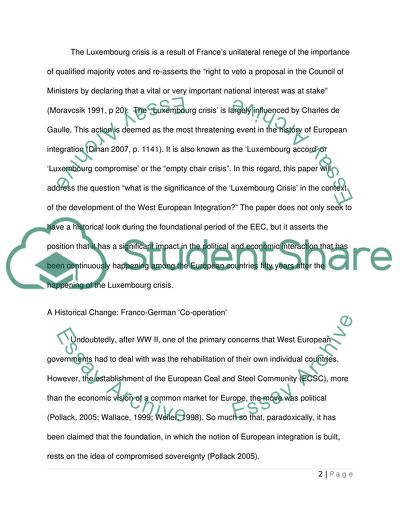Cite this document
(The Significance of the Luxembourg Crisis Case Study, n.d.)
The Significance of the Luxembourg Crisis Case Study. Retrieved from https://studentshare.org/history/1760455-what-was-the-significance-of-the-luxemburg-crisis-in-the-context-of-the-development-of-west-european-integration
The Significance of the Luxembourg Crisis Case Study. Retrieved from https://studentshare.org/history/1760455-what-was-the-significance-of-the-luxemburg-crisis-in-the-context-of-the-development-of-west-european-integration
(The Significance of the Luxembourg Crisis Case Study)
The Significance of the Luxembourg Crisis Case Study. https://studentshare.org/history/1760455-what-was-the-significance-of-the-luxemburg-crisis-in-the-context-of-the-development-of-west-european-integration.
The Significance of the Luxembourg Crisis Case Study. https://studentshare.org/history/1760455-what-was-the-significance-of-the-luxemburg-crisis-in-the-context-of-the-development-of-west-european-integration.
“The Significance of the Luxembourg Crisis Case Study”. https://studentshare.org/history/1760455-what-was-the-significance-of-the-luxemburg-crisis-in-the-context-of-the-development-of-west-european-integration.


